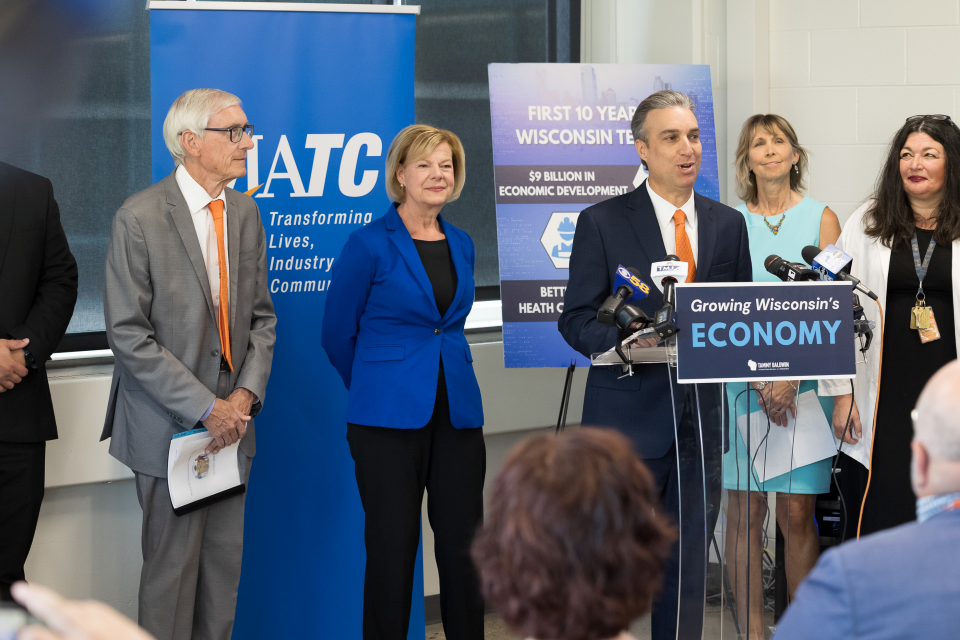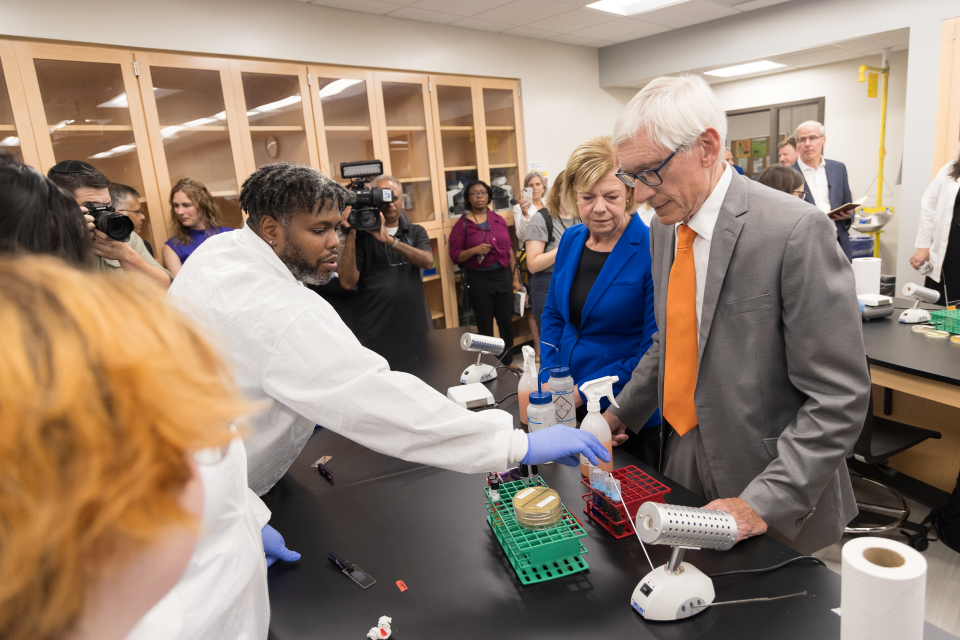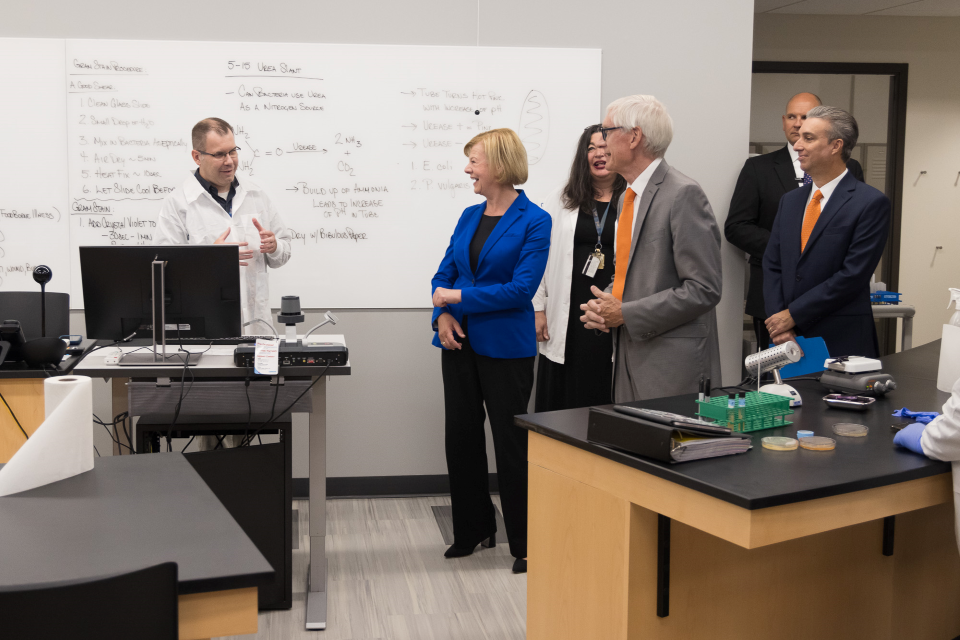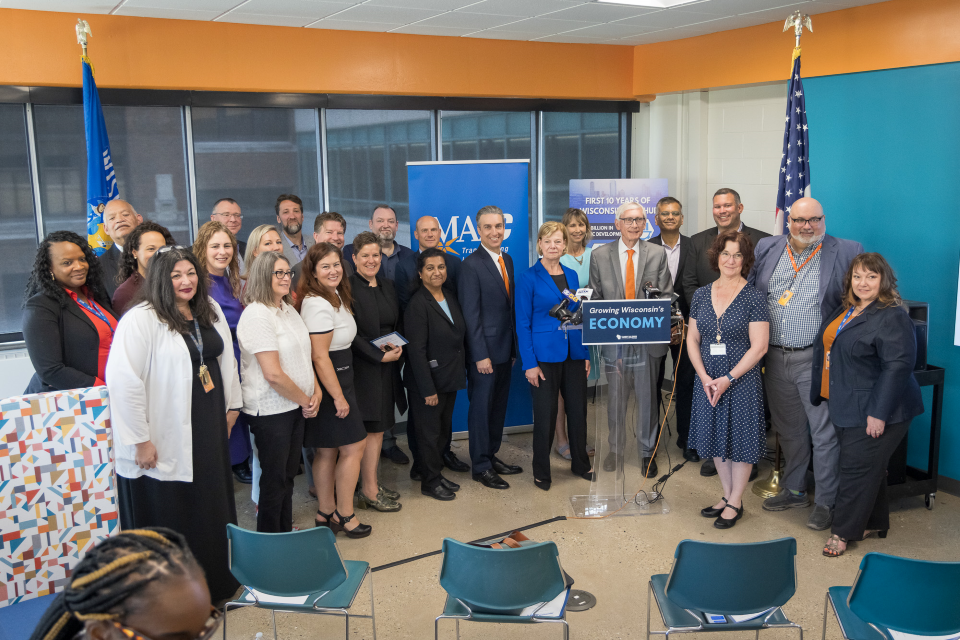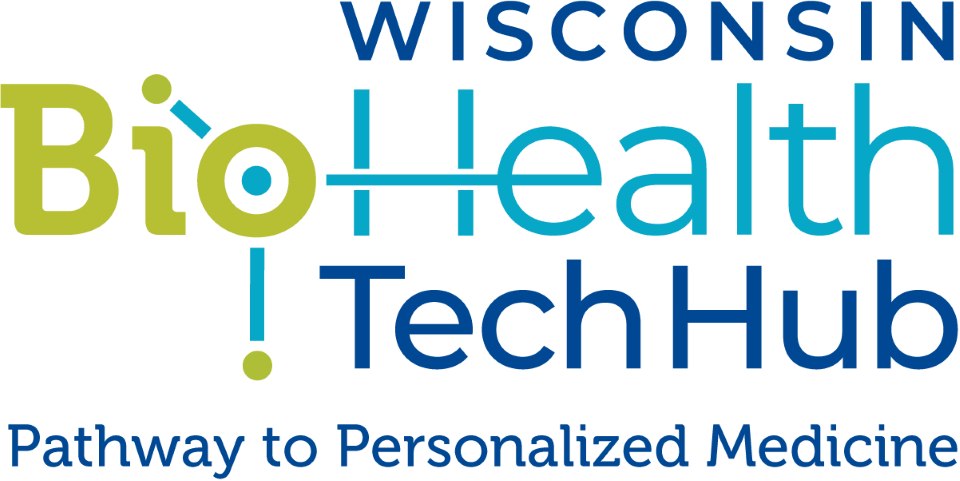Simply put, this is a once-in-a-generation investment for Wisconsin.
The Wisconsin BioHealth Tech Hub means business – big business.
In the next decade, Wisconsin could see $9 billion in new economic development and 140,000 total jobs created thanks to its designation as a regional tech hub by the federal government, federal, state and local officials said on Monday, July 22.
And Milwaukee Area Technical College will play a major role in making those expectations become a reality.
U.S. Sen. Tammy Baldwin of Wisconsin, Wisconsin Gov. Tony Evers and representatives of a dozen partners in the Wisconsin BioHealth Tech Hub gathered at MATC’s STEM Educational Center to celebrate the designation and highlight the economic opportunities it will bring to the state.
“Simply put, this is a once-in-a-generation investment for Wisconsin,” said Baldwin, who has worked on the biohealth tech hub designation since 2019. “This project will impact Wisconsin workers, jobs and the economy, and will move the needle on how people receive healthcare.”
See TV coverage of the event
On July 2, Wisconsin was selected as one of 12 regional tech hubs across the country and received $49 million in federal funding to boost the state’s personalized medicine and biohealth sectors. Personalized medicine tailors tests, treatments and therapies to patients’ unique genetic codes, medical records and environment.
MATC, along with Madison College, the Universities of Wisconsin, the Workforce Development Board of South Central Wisconsin and Employ Milwaukee, will provide training and upskilling to prepare the skilled workforce needed to meet the industry’s demand for employees. The effort, called the Actualizing Biohealth Career Pathways, or ABC Pathways, is one of six projects being undertaken by the biohealth tech hub.
“We will train the next generation of workers and usher in a new era,” Evers said at Monday’s event. “There’s no limit to where we can go.”
During the next decade, the ABC Pathways group will work to deliver career awareness, specialized training, job alignment, career recruitment, career exploration and apprenticeship opportunities for young people, and upskilling for current workers, said Dr. Mark Thomas, Madison College’s chief strategy officer and executive vice president.
“It’s in the DNA of our technical colleges to provide training and necessary skills for these jobs,” Dr. Thomas said.
Baldwin, Evers and other guests got a firsthand look at some of the equipment and facilities where this training will take place. In the STEM Educational Center, visitors saw a C-Arm machine used to train radiography technician students. The device displays X-rays while doctors perform surgery. They also toured the college’s current biohealth lab.
“At MATC, you’ll see the bread and butter of what this effort is all about,” Baldwin said. “It’s all about how workers get these skills.”
“The biohealth tech hub opens the doors and gets people into those great paying jobs and helps the patients who need the care,” said Dr. Sheldon Garrison, a part-time STEM instructor at MATC since 2009. Biohealth sector employees earn an average annual wage of $96,000, substantially higher than the state’s private sector average.
The biohealth tech hub will have a tremendous effect on not only the state, but on MATC and its partners, said MATC President Dr. Anthony Cruz.
“This is a landmark moment,” Dr. Cruz told the guests at the event. “We will look back on this and see that this really made a transformative change for our community.”
About MATC: As Wisconsin’s largest technical college and one of the most diverse two-year institutions in the Midwest, Milwaukee Area Technical College is a key driver of southeastern Wisconsin’s economy and has provided innovative education in the region since 1912. More than 30,000 students per year attend the college’s four campuses and community-based sites or learn online. MATC offers affordable and accessible education and training opportunities that empower and transform lives in the community. The college offers more than 180 academic programs — many that prepare students for jobs immediately upon completion and others that provide transfer options leading to bachelor’s degrees with more than 40 four-year colleges and universities. Overwhelmingly, MATC graduates build careers and businesses in southeastern Wisconsin. The college is accredited by the Higher Learning Commission.
